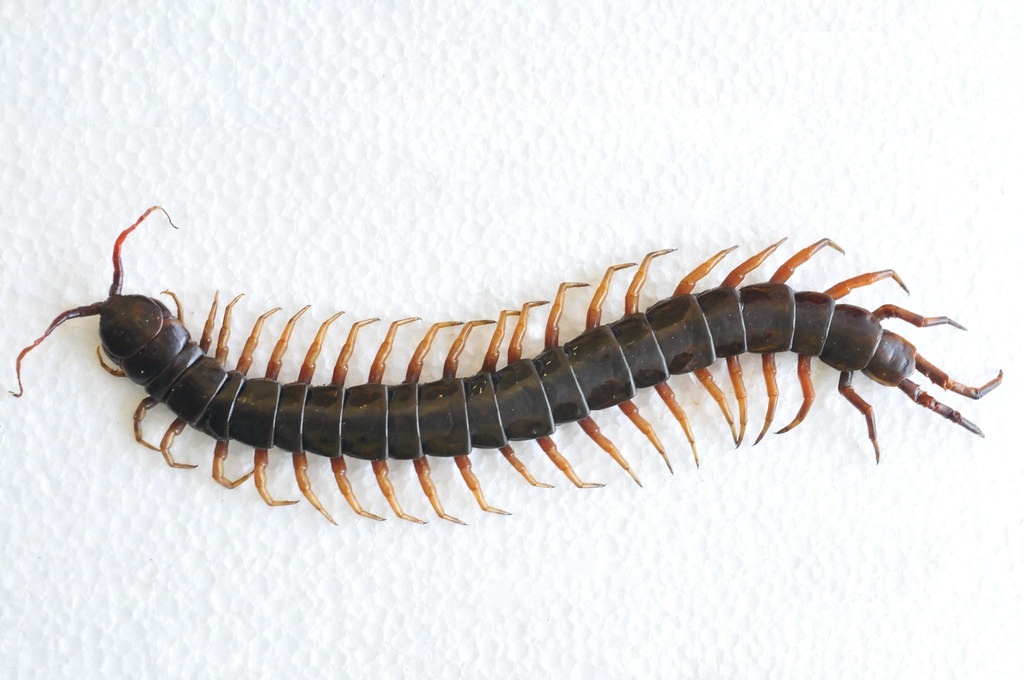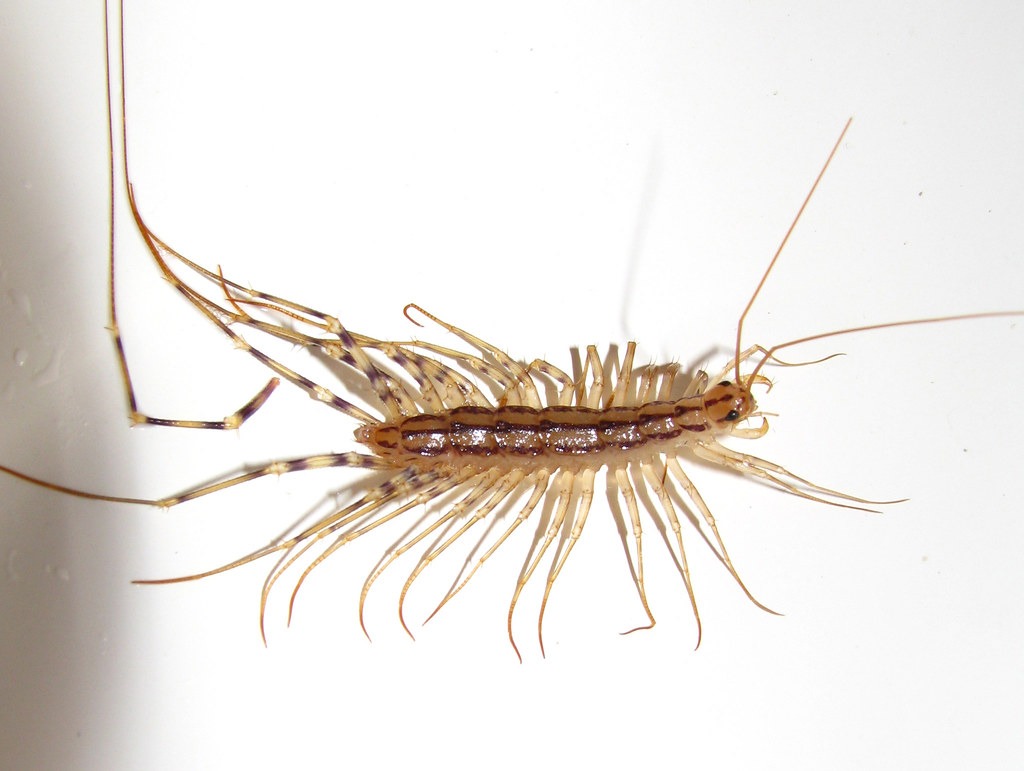You’ve probably seen them before—those creepy, leggy critters scurrying across your basement floor. With their long antennae, worm-like bodies, and dozens of twitchy legs, house centipedes are easy to recognize. They range in color from yellow to dark brown and even have venomous fangs. But before you grab a shoe or a paper towel, here’s what you need to know.
Yes, Centipedes Can Bite—But Don’t Panic
While centipedes can bite and inject venom, they’re not a real danger to people or pets. At worst, their bite might cause mild redness or soreness, kind of like a bee sting. Serious reactions are rare and usually not something to worry about.
5 Weird (But Cool) Facts About Centipedes
-
More Legs with Age: A centipede’s leg count can increase over time. As they molt and regrow lost limbs, older centipedes often have more legs than younger ones.
-
They’re Ancient Survivors: Centipedes have been around for over 400 million years—long before the dinosaurs.
-
They’re Lightning-Fast: Thanks to their segmented bodies and many legs, some centipedes can travel over a foot in under a second!
-
They’re Voracious Predators: House centipedes love to snack on roaches, spiders, flies, silverfish, termites—you name it. Larger species even go after frogs and other bugs their size.
-
They Can Live a Long Time: Believe it or not, some centipedes can live up to six years—or even ten in rare cases.
So… Who Eats Centipedes?
Nature keeps everything in balance. Birds, beetles, frogs, snakes, mice, and even spiders are all natural enemies of the centipede. Bigger centipedes, in turn, hunt some of these creatures themselves, especially when young or injured.
Here’s Why You Don’t Want to Kill House Centipedes
Even though they look unsettling, house centipedes are actually good for your home. They don’t spin webs, build nests, or damage property. What they do is quietly eliminate the real pests—roaches, ants, bed bugs, and more.
Think of them as your natural, non-toxic pest control.

But—there’s a limit. A few centipedes here and there are helpful. But if you start seeing a lot of them, it might mean you have a bigger pest problem on your hands. And since some centipedes can stick around for nearly a decade, you probably don’t want them hanging out rent-free.

When to Call the Pros
If centipedes are popping up more than occasionally—or you just don’t want them in your living space—it’s time to call a pest control expert. A professional can help eliminate the root problem and keep your home pest-free without losing the hidden benefits of centipedes in the process.





